There aren't a lot of rules for how we function in these groups, but the following patterns have guided our time together:
We meet once a week for one hour.
Leadership rotates so that all who desire to do so will have the opportunity to lead. The leader begins the session on time and facilitates the sharing, often beginning with the principles and the affirmation in "The Challenge and the Hope" [see Appendix 1).
One member, sometimes the leader, serves as teacher and speaks for five or six minutes, usually focusing on one of the five steps and a passage of scripture.
Approximately 45 minutes are given to personal sharing. This sharing, which is the heart of the meeting, is not about ideas but feelings, not conjecture but experience.
Confidentiality is honored. What we say in the group stays in the group.
Generally we follow the 12 step method of attentively listening to what is shared with no response or cross talk.
The leader facilitates prayer at the close of the time, and in some groups a member celebrates the Eucharist.
Group business items are considered at a separate time, as needed.
BECOMING A MEMBER
Becoming a member of this initial group is very simple. We want all to know how much each person is wanted and needed, and how much everyone's participation benefits the whole.
Becoming a full member of the group requires three steps:
At the invitation of a current member, attend two consecutive meetings and indicate a desire to belong.
Be willing to embrace the basic principles named in "The Challenge and the Hope" [see Appendix 11.
Commit to the principles and practices of the five steps, and be willing to share personal experiences and feelings openly and honestly, respecting the confidentiality of the group.
ENDING ONE'S MEMBERSHIP
Ending one's membership in the group is equally simple:
Be absent from two consecutive meetings without notice.
Indicate a desire to withdraw, preferably after prior discussion with the group.
EXTREME DIVERSITY
From the beginning, these groups have been an experiment in extreme diversity, intentionally bringing together seeming "opposites," people who appear outwardly to have little in common with each other and who might not otherwise be likely to find depth belonging together. In overt ways racially, culturally, economically, etc. we are different from each other, and often separated because of these differences. By joining the group we are saying we want to know and be known by others who seem different from us and to offer these seeming differences as a healing gift for the whole.
We intentionally work to maintain a balance of diversity because we want to embody Jesus' nature, and we know Jesus expresses himself through all parts of God's family, reconciling all who are separated. That's just who Jesus is. If we hope to be healed from our isolation and be made whole again, we will seek to reunite with all from whom we have been separated. We therefore seek mutual relationships with our so called opposites. Not to "do for" but simply to "be with" one another. We long for God to heal and redeem what has been broken between us.
To have the desired diversity means that although we believe the life changing love of Christ is available to all, we will guide people toward groups where their presence will more likely complement the balance. Also, we no longer hope that our "opposites" will seek us out and discover how welcoming we are; instead, we will notice who is not represented in our group and accept personal responsibility for inviting them in. We will extend ourselves to others whom we might not have sought to know before. We will ask, who is not represented here and what would need to happen to create a more diverse body?
In a group that is small enough for in depth sharing (probably a maximum of about 20, splitting off into new groups when the number grows larger) it is nearly impossible for all variations of diversity to be represented, but we are committed to making concerted effort to have as much diversity as possible.
Extreme diversity is essential if we are going to become the authentic church, but it does not come to most of us naturally. Our natural gravitation tends to be toward sameness. We want to be intentional about breaking this ingrained pattern. We are inspired by Jesus, who was always crossing the cultural boundaries of his day. He sought to break through walls of separation and injustice, and so shall we. Joined in that desire, we will, as Gandhi said, "become the change we hope to see in the world."
We all are damaged by the ways we have isolated ourselves, trying to avoid being known. Determined to protect ourselves and play it safe, or be as independent as possible, we have adopted various attitudes and behaviors as pathetic substitutes for the holy. We need each other , especially those whom we have hurt and have been hurt by, if we hope to be healed. Letting down our walls and learning to care for each other is the way we begin to find the healing we so desperately need.
The world has told us that we are "opposed" to one another because of our differences, but this is an illusion. We are liberated as we come to know each other more deeply and are able to transcend the illusion of "opposites." Reconciliation requires finding common ground on which we can both transcend and embrace our differences. The authentic church provides that common ground.

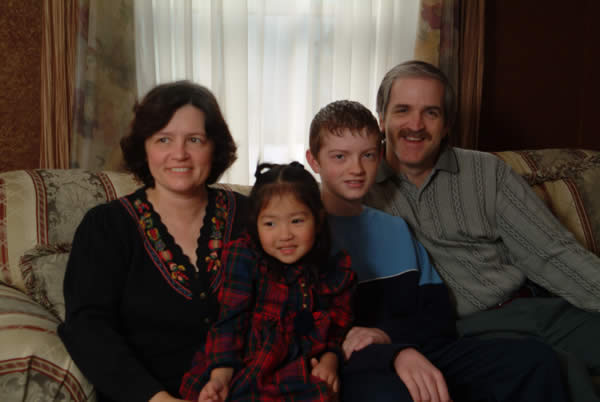
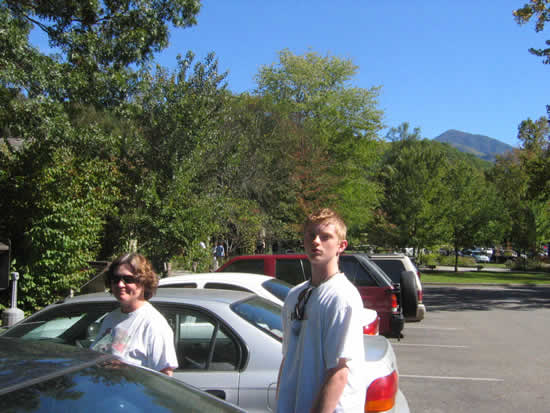
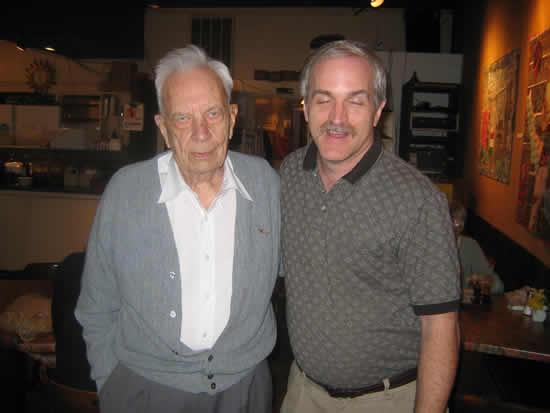
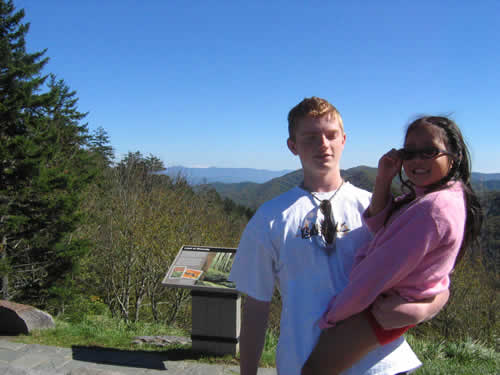


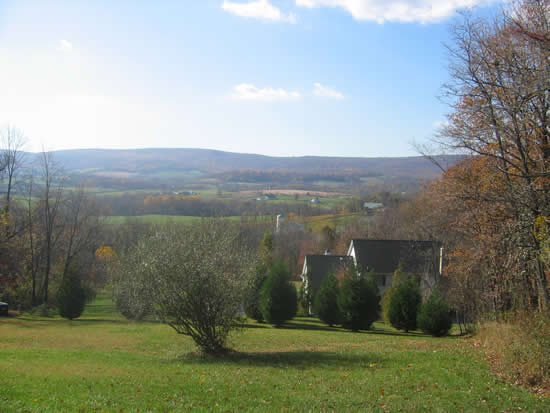
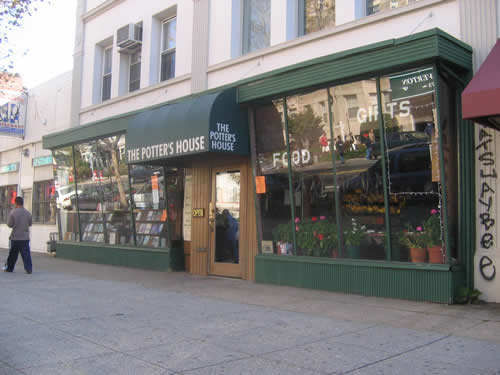
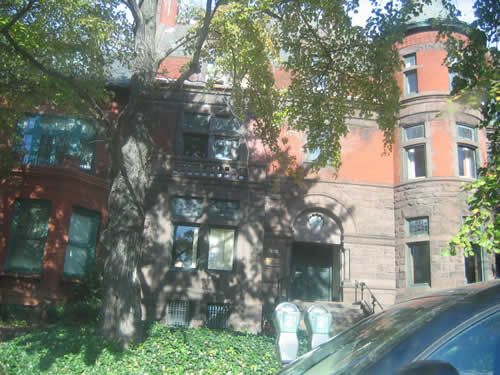
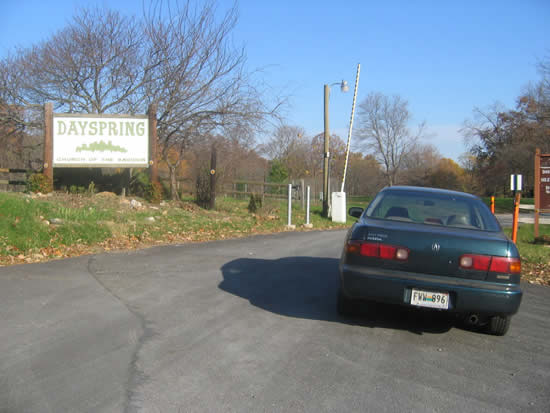

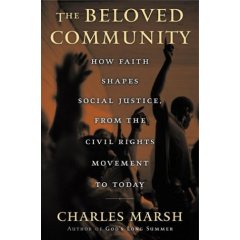 I decided to clip this section on my early readings in Charles Marsh's The Beloved Community from an earlier post to bring this work to a greater focus. What a tremendous book (through 72 pages thus far. The narrative of both King and the Montgomery Bus Boycott, and the first half of the story of Clarence Jordan and Koinonia Farm is a treat and a moving story.
I decided to clip this section on my early readings in Charles Marsh's The Beloved Community from an earlier post to bring this work to a greater focus. What a tremendous book (through 72 pages thus far. The narrative of both King and the Montgomery Bus Boycott, and the first half of the story of Clarence Jordan and Koinonia Farm is a treat and a moving story.